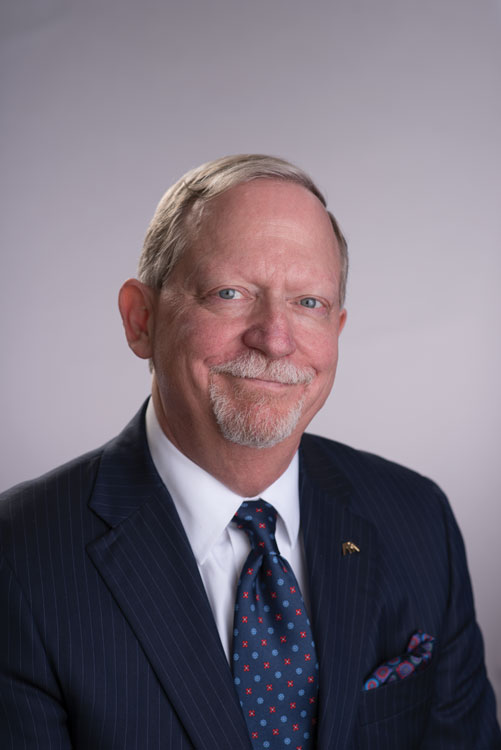It's time to promote our health

Photo of Bob Carlson by Tom Salyer
The holiday season is upon us, and office parties and family gatherings fill our calendars. For most, these are times of great joy and good cheer. However, for those suffering from substance abuse or mental health issues, the holidays can become a time of dread and depression.
A 2016 study conducted by the American Bar Association Commission on Lawyer Assistance Programs (CoLAP) and the Hazelden Betty Ford Foundation found that 21 percent of licensed attorneys qualify as problem drinkers. That’s 1 in 5 and compares to just 1 in 8 of highly educated workers in other professions.
The study also revealed that 28 percent of lawyers experience depression and 19 percent have anxiety symptoms. The problems are more prevalent among young attorneys in their first 10 years of practice. Evidence shows lawyers also suffer from increased levels of suicide, work addiction and sleep deprivation.
At your next firm party or bar association gathering, look around the room. Odds are that if some people you see are not suffering from these issues, they know someone who is.
This issue should be important to all of us in the profession. To be an ethical, competent lawyer, you first need to be a healthy lawyer.
America’s lawyers need to know that the ABA is working hard to improve lawyer wellness. Through CoLAP, we are working to ensure that every lawyer, judge and law student has access to support when dealing with substance abuse and mental health issues.
Since the 2016 study, the ABA has taken steps to draw attention to lawyers facing distress and to help firms act.
In 2017, the ABA’s National Task Force on Lawyer Well-Being issued a report called “The Path to Lawyer Well-Being: Practical Recommendations for Positive Change.” This report concentrated on the roles we all can play in addressing this problem. It stressed education and emphasized that well-being is an integral part of a lawyer’s duty of competence. The report provides recommendations, with state action plans, for legal profession stakeholders, including regulators, the judiciary, law schools, professional liability carriers and bar associations.
The report highlights the need to eliminate the stigma of seeking help. Creating a safe, confidential path to getting assistance is critical to solving the problem.
My predecessor, Hilarie Bass, formed a Presidential Working Group to Advance Well-Being in the Legal Profession in September 2017. The group assists legal employers—which often want to help but are unsure where to start—develop and support healthy work environments.
The “Well-Being Toolkit for Lawyers and Legal Employers,” released in August, offers tools for legal employers that want to join the lawyer well-being movement by launching organizational initiatives. Also available is the “Well-Being Toolkit Nutshell: 80 Tips for Lawyer Thriving,” summarizing 80 of the toolkit’s key items.
To raise awareness, the ABA launched a campaign in September targeting substance-use disorders and mental health issues among lawyers. After just one month, 25 of the nation’s largest law firms have already signed a pledge to support the initiative and adopt its framework for improved well-being.
At the ABA 2018 Midyear Meeting in Vancouver, the House of Delegates passed Resolution 105, which made it ABA policy to support the goal of reducing mental health and substance use disorders. The resolution also called for all entities dealing with lawyers to consider putting into action the recommendations contained in the “Path to Lawyer Well-Being” report.
To aid our future lawyers, the ABA Law Student Division sponsored Law School Mental Health Day in October, which included podcasts, webinars and a YouTube Live event. They also encouraged law schools to hold programs that break the stigma associated with depression and anxiety.
The legal profession is at a crossroads. Our members, our colleagues, our friends are suffering. It is our duty as lawyers and human beings to help. So please, enjoy the holidays, but keep in mind others who may need help. Get involved, talk to your firm and colleagues, start a well-being program and join the ABA in helping lawyers through these problems.
Follow President Carlson on Twitter @ABAPresident or email [email protected].



